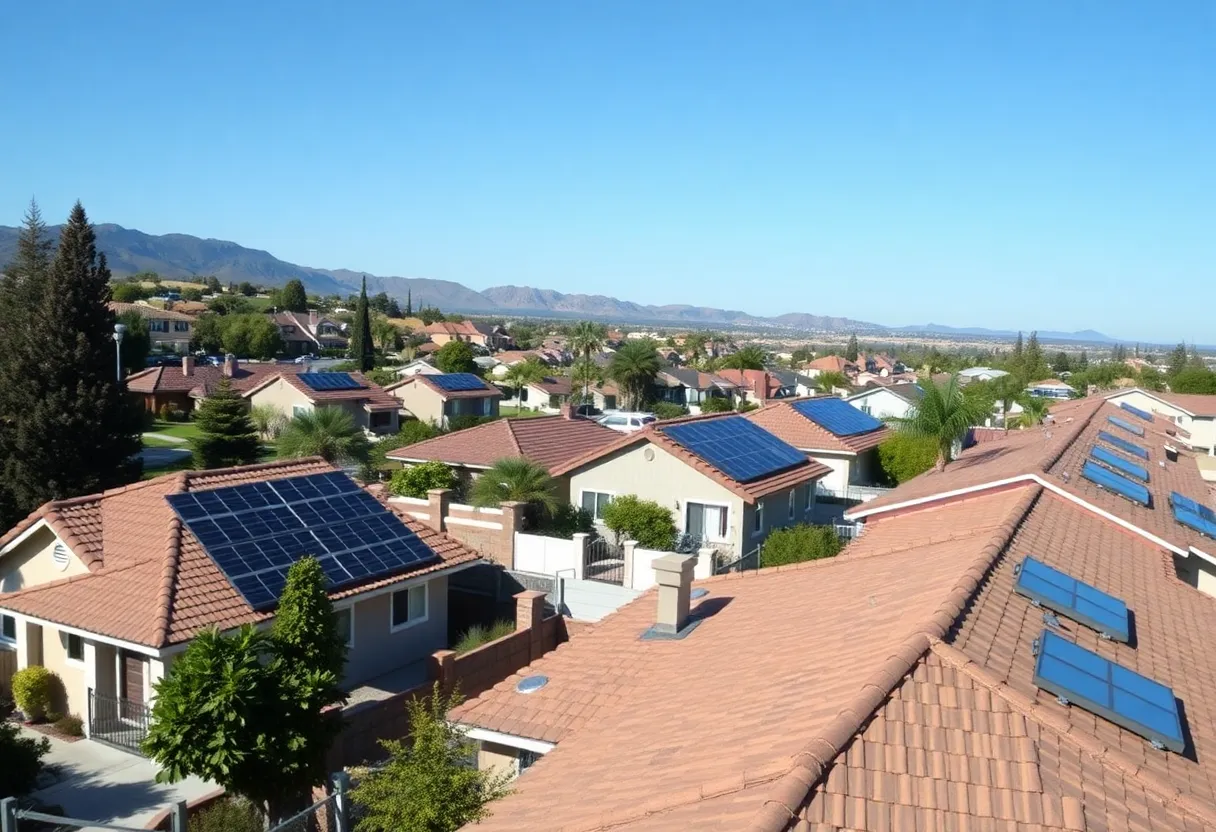California, September 27, 2025
News Summary
This October, over 11.5 million households in California will automatically receive refunds on their electric bills through the California Climate Credit program, amounting to over $700 million. Each household will see an average credit of around $61, boosting the total refunds to approximately $198 per customer for the year. The program is part of California’s Cap-and-Invest initiative, aimed at funding environmental projects, creating jobs, and reducing greenhouse gas emissions.
California households are set to benefit significantly from the California Climate Credit program this October, with more than 11.5 million homes poised to receive automatic refunds on their electric bills. The total payments to residential customers will exceed $700 million, with qualifying small businesses slated to receive approximately $60 million.
Each household can expect an average refund of around $61, with individual credit amounts ranging from $35 to $259. Most households will see refunds between $56 and $81. In April, households already received a similar credit, meaning the average total refund for 2025 will rise to approximately $198 per customer.
This boost in credits comes as new legislation was signed into law last week, which aims to increase future credits. Up to $60 billion will be allocated to the electric Climate Credit through 2045. Specific refund amounts from the new legislation are expected to increase starting next year, though details are yet to be specified.
The Mechanism Behind the Credit Program
The refunds are part of California’s Cap-and-Invest Program, which is managed by the California Air Resources Board. This program not only provides direct financial relief for residents but is also instrumental in funding initiatives that support climate goals. These initiatives include $33 billion dedicated to affordable housing near job centers, high-speed rail, and zero-emission transportation projects, particularly in underserved communities.
Since the inception of this program in 2014, it has granted a total of $14.6 billion in bill refunds to residential utility customers. Refunds are issued biannually—once in April and again in October—automatically credited to eligible customers’ electric bills. Customers of major utility companies, including PG&E, San Diego Gas & Electric, Southern California Gas Company, and Southwest Gas, qualify for these credits. Households that do not see the credited amount on their bills are encouraged to contact their utility provider for assistance.
Environmental and Economic Impact
The Cap-and-Invest Program has yielded notable results regarding both environmental and economic impacts. Initiatives funded through the program have created over 120,000 jobs and are credited with achieving reductions in millions of tons of carbon emissions. California’s greenhouse gas emissions have decreased by 20% since 2000, while the state’s gross domestic product (GDP) has grown by 78%. This economic growth places California as the world’s fourth-largest economy.
In terms of electricity, California has made significant strides. In 2023, two-thirds of the state’s electricity was sourced from clean energy, with the electric grid operating on 100% clean energy for parts of nearly every day of that year.
Conclusion
With substantial financial refunds on the way for California residents, the Climate Credit program not only aims to ease household expenses but also reinforces a commitment to environmental sustainability and economic growth.
FAQ
How much will California households receive as refunds in October 2025?
What is the average credit amount per household?
What financial support will small businesses receive?
What is the history of the California Climate Credit program?
What major initiative funds are Allocated through the Cap-and-Invest Program?
Key Features of the California Climate Credit Program
| Feature | Details |
|---|---|
| Target Audience | Over 11.5 million California households |
| Total Payments | Exceeds $700 million for October 2025 |
| Average Credit Amount | Approximately $61 per household |
| Refund Ranges | From $35 to $259 |
| Impact on Small Businesses | Approximately $60 million for qualifying small businesses |
| Historical Context | A total of $14.6 billion in refunds since 2014 |
| Future Changes | New legislation may increase future credits |
| Environmental Impact | Created over 120,000 jobs and reduced greenhouse gas emissions by 20% since 2000 |
| Percentage of Clean Energy | Two-thirds of California’s electricity from clean energy in 2023 |
Deeper Dive: News & Info About This Topic
- Fox40 News
- Wikipedia: California Climate Credit
- Los Angeles Times
- Google Search: California electricity refunds October 2025
- LAist
- Google Scholar: California Cap-and-Invest Program
- KSBY News
- Encyclopedia Britannica: Cap and Trade
- Palisades News
- Google News: California Climate Credit program

Author: STAFF HERE BEVERLY HILLS WRITER
The Beverly Hills Staff Writer represents the experienced team at HEREBeverlyHills.com, your go-to source for actionable local news and information in Beverly Hills, Los Angeles County, and beyond. Specializing in "news you can use," we cover essential topics like product reviews for personal and business needs, local business directories, politics, real estate trends, neighborhood insights, and state news affecting the area—with deep expertise drawn from years of dedicated reporting and strong community input, including local press releases and business updates. We deliver top reporting on high-value events such as the Rodeo Drive Concours d'Elegance, the Beverly Hills artSHOW, Concerts on Canon, and holiday celebrations throughout the city. Our coverage extends to key organizations like the Beverly Hills Chamber of Commerce and Visit Beverly Hills, plus leading businesses in luxury fashion, hospitality, and entertainment that drive the local economy. As part of the broader HERE network, including HERELosAngeles.com, HERESantaAna.com, HEREHuntingtonBeach.com, and HERECostaMesa.com, we provide comprehensive, credible insights into Southern California's dynamic landscape.



